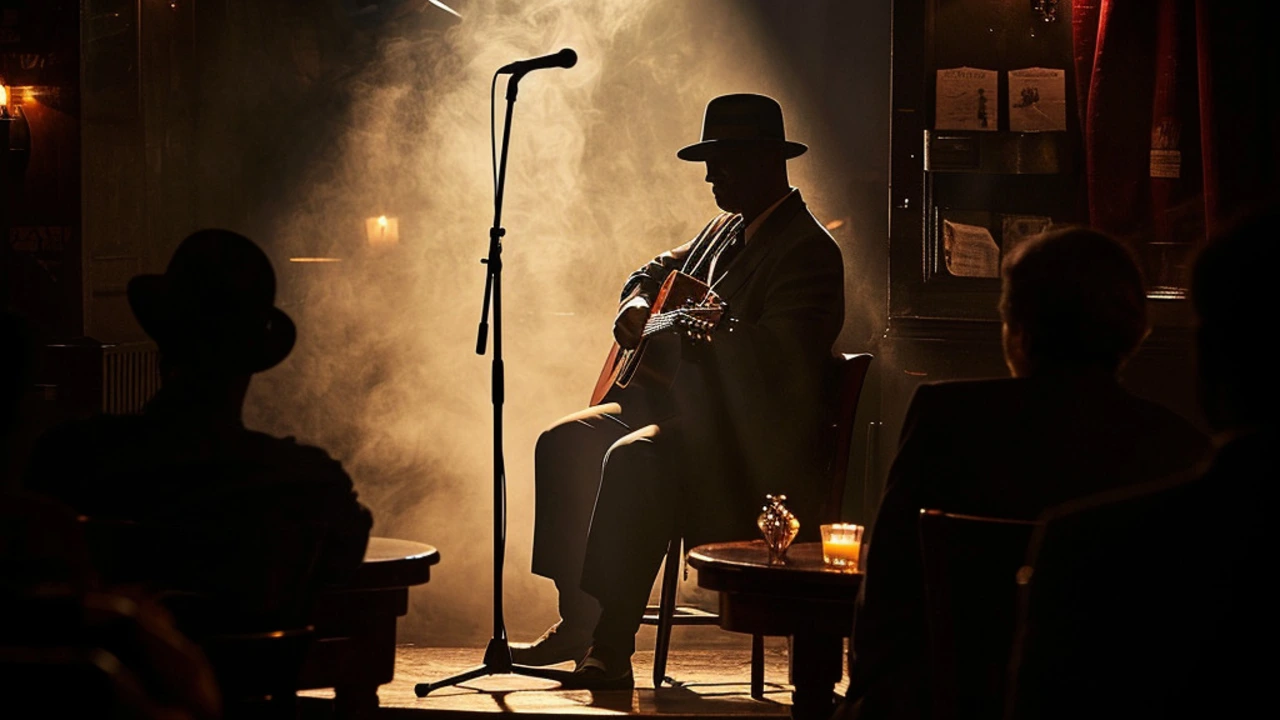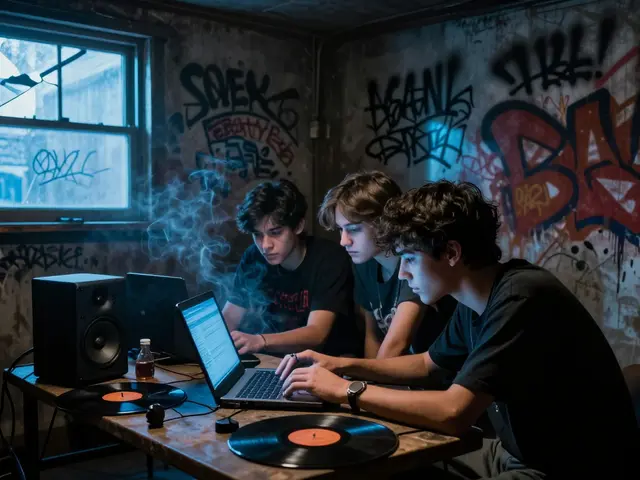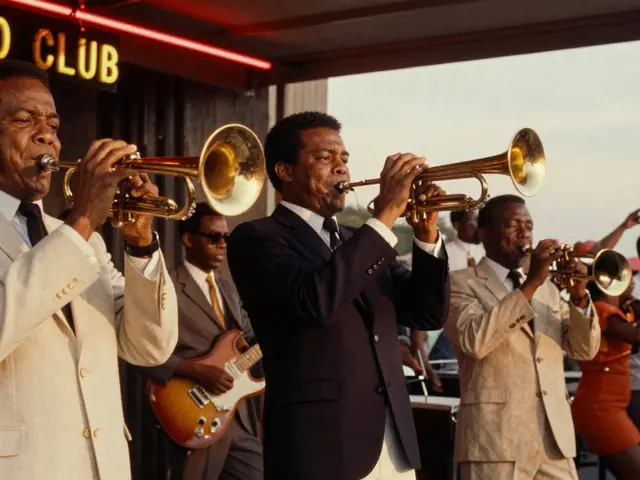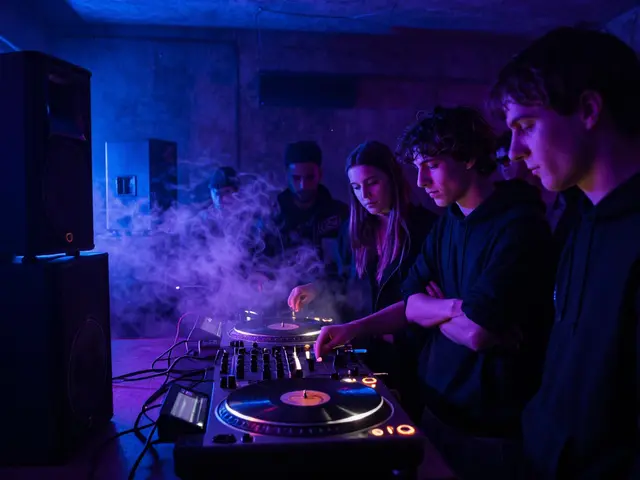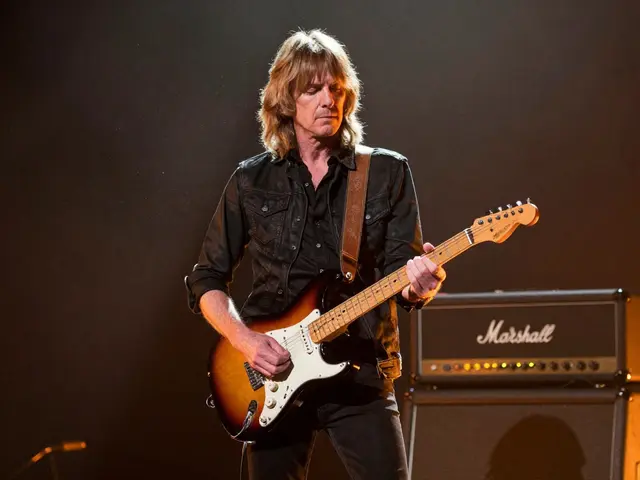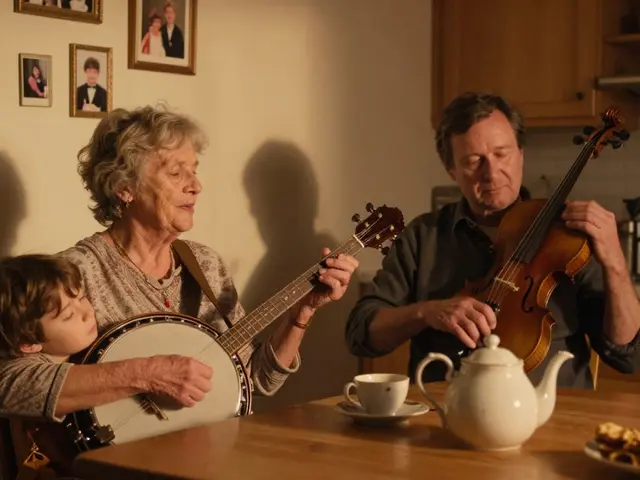The Soul-Stirring Origins of Blues Music
It's pretty fascinating how a genre of music can encapsulate the heartache, the passion, and the trials of life. That's blues for you, a genre so raw and so visceral that it practically grips you by the soul and commands you to feel every aching note. So let me take you on a journey, one that starts way back in the Deep South of the United States, sometime after the Civil War. This was a period steeped in adversity and looking for an outlet—and Blues was that outlet. It sprouted from spirituals, work songs, field hollers, shouts and chants, and rhymed simple narrative ballads.
You have to imagine the hot and sticky fields where people were toiling away, and music became their healer. It’s pretty powerful when you think about how this music was born from experiences of African-American communities, how they used to share stories of their lives, their loves, and their losses, which eventually gave birth to Blues. It’s almost like a saga of resilience and hope that’s embodied in the melancholy of the music. The very term ‘blues’ perhaps comes from ‘blue devils’ meaning melancholy and sadness; it’s like a badge of endurance, isn’t it?
The Pioneers Who Blazed the Trail
Oh, the personalities that shaped the blues are a remarkable bunch! We're talking titans who’ve set the benchmark. Let me tell you about some of these pioneers, like Ma Rainey, often referred to as the ‘Mother of the Blues’, who could belt a tune that could shake you to your core. Then there’s the mystery-shrouded Robert Johnson—rumored to have sold his soul to the devil for his musical prowess—who left us with recordings that musicians still idolize today.
And how can we talk about the blues without tipping our hats to the legendary B.B. King and his beloved guitar Lucille? I have to say, every time Charlie and I hear "The Thrill Is Gone", it's like you can almost taste the sorrow in that guitar string bending. It’s these pioneers and many others who took the hard, raw experiences of life and channeled them into something timeless—a legacy that continues to influence musicians across the globe.
The Migration of the Blues: Northward Bound
Blues music had a big move day, and that chapter in its life involved packing up and migrating north. Think of it like a tree whose roots are firmly planted in the South, but whose branches reached out to cities like Chicago, Detroit, and St. Louis. This movement wasn’t just geographical; it was transformative as the blues evolved, getting electrified along the way—quite literally. Artists like Muddy Waters and Howlin' Wolf plugged in their guitars, amped up the sound and what came next was just electrifying!
You see, this migration was a sort of renaissance for the blues, bringing it to a wider audience who embraced it wholeheartedly. Industrial cities gave blues a new backdrop, lending it an edge, a raw urban energy. I can just imagine Parke and Mabel's amazement if they got to see the way these cities became melting pots of musical innovation, as the blues birthed new styles like Chicago blues and Detroit blues, each with its own distinctive character.
Delta Blues: The Heartbeat of Blues Music
But if you were to trace the blues back to its beating heart, you'd land in the Mississippi Delta. It’s where it all began—a musical Mecca of sorts. The Delta blues is unvarnished, intimate, and as real as it gets. It was here that the giants like Charley Patton and Son House stirred the earth with music that was as rich as the soil in the Delta.
Even today, when I strum a few lines of "Death Letter Blues" on my old guitar, there's something almost haunting about the twang and the moan that resonates. Delta blues retains that unfiltered emotion, and it’s like you’re tapping directly into the history, the pain, and storytelling that is at the core of this powerful genre. There’s nothing quite like the Delta style, with its searing slide guitar work and impassioned vocals—it’s raw, it’s authentic, and it’s blues right down to the bone.
Women in Blues: The Mighty Sirens of Song
We can't chat about blues without recognizing the fierce, the fabulous, and the downright formidable women who helped to shape it. These are the sirens whose mighty lungs and incredible voices helped tell the other half of the blues story—you know, experiences and viewpoints right from a woman’s heart. There’s the gritty and bold Bessie Smith, known as the ‘Empress of the Blues’, whose voice could belt out the blues as nobody else could.
What amazes me about these women is not just their towering talent but also their strength. They flourished in times that weren’t exactly a cakewalk for women, let alone African-American women. And they sang about everything: love, justice, independence, and a woman’s right to be, well, as fiery as she darn well pleased. When I sing along (albeit a bit out of tune) to a Koko Taylor track, I can't help but feel a bolt of that same strength and sass she delivered with every note.
The Influence of Blues on Other Music Genres
Blues is sort of like the Kevin Bacon of music genres—if you play Six Degrees of Blues, you’d find it connected to just about every other type of music. It's mind-blowing to see its influence sprawled across jazz, R&B, rock 'n' roll, and even hip-hop. You’ve got jazz cats like Louis Armstrong weaving blues into their improvisations, and rock legends like The Rolling Stones who owe a lot of their grit and groove to the blues.
Even today's artists still tip their hats to the blues. They might not be singing straight-up 12-bar blues, but the influence lingers in the soulfulness of their melodies, the storytelling of their lyrics, and the rawness of their sounds. Have you ever noticed that melancholic twang in a John Mayer solo, or the way Adele conveys a world of heartbreak in a single note? Yup, you guessed it—shades of blues! It’s amazing how this one genre has seeped into the fabric of so much music that we love today, underpinning it with a sense of depth and realness.
Blues and the Harmonica: An Iconic Duo
Let me tell you about the unsung hero of the blues—the harmonica, often called the ‘blues harp’. What this little instrument lacks in size, it more than makes up for in soul. The harmonica became a staple in blues music, with virtuosos like Little Walter and Sonny Boy Williamson II breathing life into it and making it sing, wail, and pretty much speak the language of the blues.
It's a special kind of magic, the way a blues musician can take a harmonica, draw that breathy, bending note and suddenly you feel like you’re right there, in the heart of a swaying, smokey blues joint. The harmonica's got this intimacy—you’re literally breathing the music. And it's versatile! Whether it's a slow, aching ballad or an upbeat jump blues number, the harmonica fits right in. When Charlie breaks out his harmonica at family gatherings, even the kids can't help but be drawn to the soulful sound spiraling out of that pint-sized power box.
The Resurgence of Blues: A New Dawn or a Timeless Revival?
Sometimes it feels like the blues goes through waves—ebb and flow, like the tide. But one thing's for sure, the blues never really goes out of fashion. It has its resurgences, with festivals like The Chicago Blues Festival or moments in film and television that bring it back to the forefront for a spell.
What’s magical is seeing young musicians taking up the baton, intrigued by the depth and sincerity of the blues. They’re not just preserving it; they’re reinventing it, taking it into the 21st century and finding new ways to express those age-old emotions and stories that sit at the heart of the blues. It’s like the genre is in a perpetual state of revival, continually finding new ears to resonate with, and new hearts to affect. And trust me, once you get a taste of the real blues, you can’t help but feel that pull, like it’s calling out to something deep inside you.
The Community of Blues: More Than Just Music
Blues music has always been as much about the community as the chords; it's a bond that connects souls. I’m talking about the kind of connection that’s forged in small, dimly lit clubs, at lively festivals, and through the shared nods of appreciation as a guitarist lays down a smooth lick. It’s a feeling of being understood, of shared stories, and of being part of a tradition that’s as much about camaraderie as it is about the music itself.
Charlie and I have met some of our dearest friends at blues gigs, bonding over a shared love for the twang of a guitar string and the punch of a heartfelt lyric. There’s something so incredibly welcoming and inclusive about the blues community. Whether you’re an old hand or a newbie still figuring out your B.B. from your T-Bone, there’s a place for you here. And if you ever get the chance to sit in on a blues jam, oh honey, you're in for a treat! It's this raw, spontaneous combustion of talent and spirit—it's communal storytelling at its finest.
From Vinyl to Digital: Keeping the Blues Alive
Now, in a world of streaming and digital downloads, you might wonder how something as achingly traditional as the blues fits in. But let me assure you, blues is keeping up with the times. Sure, there's nothing quite like the crackle of a blues record on vinyl—that warm, rich sound that feels like it’s reaching out from another era. But thanks to the wonders of the internet, blues has found new life on digital platforms where it's available with just the tap of a screen.
Charlie and I often have debates about the merits of vinyl versus digital; there's a certain romance to the former but the accessibility of the latter cannot be denied. With music discovery apps and online archives, it’s easier than ever for Parke and Mabel to dive into the vast ocean of blues music, bringing fresh ears to legendary tracks and keeping the blues fires burning for generations to come. So, no matter how you prefer to get your musical fix, there’s a blues tune waiting to whisper its timeless tale to you.
As we take a deep dive into the rich legacy of blues music, it’s clear that it’s a genre defined by its ability to adapt, survive, and permeate every layer of the music world. From its humble beginnings in the South to its evolution across cities and into the digital age, blues remains a powerful force in music—an ever-evolving art form that continues to move and inspire. Now then, time to dust off my guitar and lose myself in some Riley B. King classics—because darling, the thrill is far from gone!

